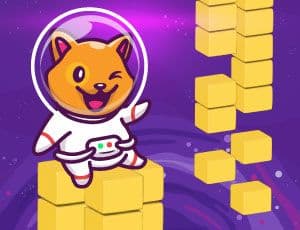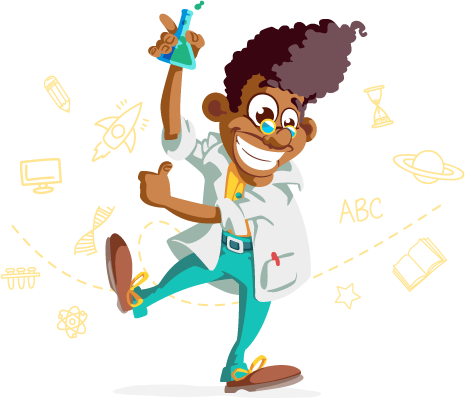Escola Games | Jogos Educativos
https://www.escolagames.com.br
Teacher's support sheet

Place Value
Hello, terraqueous! How about playing and learning Mathematics using the “golden stuff”? It favors learning because it is very dynamic and is built to represent a grouping system. From this material, you can discover meaningful relationships between parts. It is a material that enhances addition and subtraction operations, gives the notion of tens, hundreds and units. That Cool! That golden stuff is really cool! It is an excellent pedagogical resource and you will learn calculations while playing. Follow the games instructions to have fun and learn a little more, reinforcing the knowledge acquired in the classroom on a daily basis.

Teacher's tips
Level of education: Elementary School
Age: 06 to 09 years old
Categories: Math
The golden material has become essential to streamline, in particular, Mathematics classes, as it is a pedagogical resource widely used to enhance classes and leverage knowledge. You, the teacher, can encourage the children to develop the proposed online game and then move on to the concrete golden material. If you are not familiar with this material, know that it is one of the many materials designed by the Italian educator and physician Maria Montessori to stimulate knowledge aimed at Mathematics content. It helps to develop the child's sense of order, concentration, motor coordination and various skills and competences. The abstract numerical relationships become real, concrete from the golden material, thus favoring teaching and learning.
By using this material, you, the teacher, will realize that students will have a more meaningful teaching and a progress in learning. This material allows you numerous teaching strategies, it is a remarkable didactic resource that makes the student learn primitive concepts of mathematics and adapts them to new learning.
How about suggesting that parents buy a set of golden wooden material to reinforce their knowledge at home with their children? This moment will be very good, as it can make parents and children interact more. [FIM-DICA]
Learner outcomes
Make the abstract numerical relations start to have a concrete image, facilitating the understanding;
Favor the development of logical and mathematical reasoning through playful material;
Giving more dynamic and motivating classes in order to facilitate the learning of more challenging content such as Mathematics;
Enable the student to assimilate primitive mathematical knowledge and expand their concepts;
Suggest that parents buy a set of golden wooden material to reinforce mathematical contents with their children;
Enhance mathematical operations through online and wooden games;
Develop concrete and structured experiences to assimilate the most significant abstractions;
Provide children with the development of their self-confidence and autonomy, their concentration and sensory education, making them more independent;
Introduce the abacus for children to handle and better understand the decimal numbering system;
Create a “mathematics games corner” in the classroom to stimulate children and provide more playful classes.
Teachers' goals
Promoting classes with golden material made from scrap for the abstraction of mathematical knowledge;
Apply the proposed online game and first pass the instructions to develop it;
Print mathematical activities that contain the images of the golden material for children to better assimilate the game;
Carry out an interdisciplinary project to encourage more knowledge and encourage greater interaction among children;
Provide children with activities that lead to their self-confidence and independence, which can leverage knowledge;
Introduce children to the abacus to better understand the decimal numbering system;
Give freedom for children to elaborate their own knowledge, intermediating them.
Suggestions of approaches for the teacher
The golden material is intended for activities that will help teaching and learning the decimal and positional numbering system and methods to effectively perform fundamental operations: algorithms. How about provoking an art workshop in the living room to produce a golden material with scrap metal? First, encourage everyone to collect recyclable material for the production of gold material. The Arts teacher will be able to participate in this small but enriching project. Know that interdisciplinary projects are very didactic and combine elements from at least two disciplines so that the student learns better about a given subject. It is worth mentioning that it is likely that interdisciplinary projects will be carried out with a strong partnership between two, three professors or even with the entire school. This is fantastic and promotes knowledge in a very busy way. Children love these projects and amaze with their skills.
We know that in traditional teaching, mathematical exercises are tiring and children are unmotivated, so introducing the golden material will make the class lighter and more meaningful. The child will learn with more enthusiasm. Our online game will also be an excellent tool to encourage them. It will be a more relaxed way of learning. The child needs to move freely within certain limits, he needs autonomy to develop his own knowledge and the teacher will only mediate it.
More about the content
The Mathematics teacher will be able to prepare printed exercises for the students to be aware of tens and hundreds, units, operations or small problems. Pass exercises that make it possible to exchange units for tens and then tens for hundreds. Stimulate mental calculation through other math games. You can create a “games corner” in the living room. Each child will bring a math game from home to share with their peers. It will be a moment of great interaction and dynamic learning. There is no doubt that Mathematics is one of the most important disciplines and also difficult to be assimilated, so the teacher needs to look for alternatives to awaken logical reasoning. Online games are essential in this teaching mission. We know that human evolution, in recent decades, is completely dedicated to the idea of algorithms. Devices such as smartphones, computers, smart TVs and tablets work with systems based on algorithms, so the teacher needs to take the class to the computer classes. In them, children will feel more comfortable to interact in a more dynamic way and improve their knowledge. Information technology promotes social inclusion. Through available tools that explore the playful side, students will enhance their intellectual level, expand vocabulary and develop the power of logical reasoning. We, at Escola Games, aim for a promising future for children! children will feel more comfortable interacting more dynamically and improving their knowledge. Information technology promotes social inclusion. Through available tools that explore the playful side, students will enhance their intellectual level, expand vocabulary and develop the power of logical reasoning. We, at Escola Games, aim for a promising future for children! children will feel more comfortable interacting more dynamically and improving their knowledge. Information technology promotes social inclusion. Through available tools that explore the playful side, students will enhance their intellectual level, expand vocabulary and develop the power of logical reasoning. We, at Escola Games, aim for a promising future for children!
The “card game” is also very interesting for students to understand the “go one” mechanism in additions and stimulate mental calculations. Students can compare and sort numbers.
By using online games and concrete material in Mathematics classes, it is possible to show that the student tends to absorb the stipulated content more easily. monotony, a more stimulating class.
Teacher, do you know the abacus? It is an old calculating instrument, formed from a wooden base with vertical rods, assigning to each rod an order of the decimal numbering system. How about presenting it to the class to reinforce the content being studied? Here's the tip!
